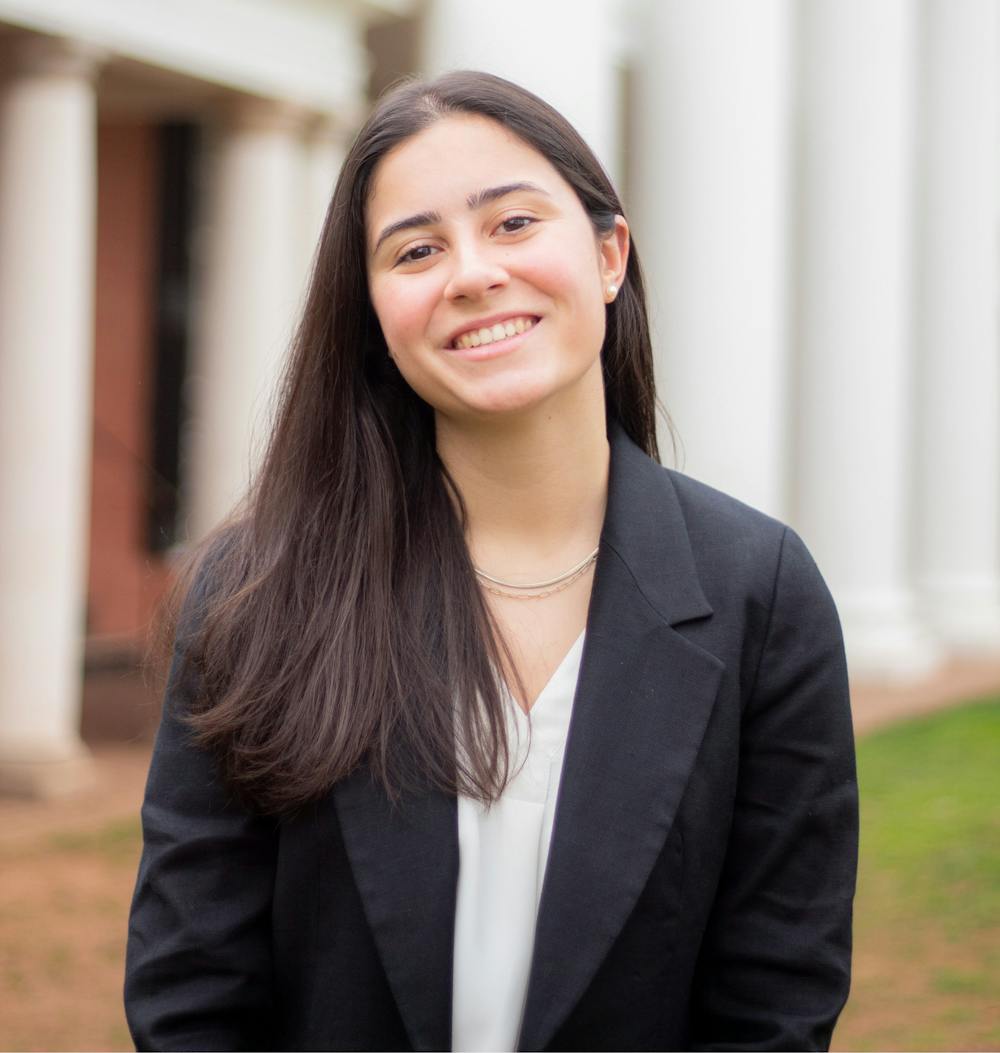Laura Howard, newly elected chair of the Honor Committee and third-year College student, said she plans to lead the Committee with an emphasis on understanding and fairness. Previously serving as vice chair for hearings, Howard was elected chair at the recent Committee retreat at Graves Mountain Lodge and said that she is dedicated to being more considerate of the diverse narratives of accused students. Howard hopes to promote compassion and fairness in all steps of case-processing, through collecting accurate data and starting conversations with underrepresented groups on Grounds.
In July 2023, the Committee abandoned its 181-year-old single-sanction policy and introduced a multi-sanction constitution to promote a more flexible and restorative sanctioning system. This transition introduced rehabilitative sanctions for honor violations, such as educational seminars and written reflections. Though she acknowledged the magnitude of the change, Howard said that the multi-sanction system is imperfect and evolving — she envisions a system that more completely embodies empathy and compassion towards accused students.
Howard said her focus on compassion stems from her prior involvement on the side of accused students in previous cases processed by the Committee. Initially serving as a support officer for the Committee, Howard worked as counsel for accused students — providing representation to students accused of Honor offenses to ensure fair and impartial proceedings. Howard said that while working as Honor Counsel, she witnessed how stressful and difficult the process can be for accused students — and she said this experience motivates her to continue building a system where the Committee guides accused students with respect and understanding.
“In interactions with students going through the Honor case process, you [understand] that people are not just the product of their Honor offense,” Howard said. “It’s important to treat them as complicated people who are navigating a lot of different things … Honor rarely encounters someone on their best day.”
Howard said that heavier sanctions may impact students differently, depending on their unique circumstances. She added that underrepresented communities on Grounds may have experiences that are not accounted for in current sanctioning processes. While recognizing the discretion granted through the precedent policy, Howard said that student experience should be a relevant factor in sanctioning.
“[There may be] aspects of [a student’s] experience that would make a particular sanction a lot harsher for them,” Howard said. “[The Committee should] be able to identify those sorts of relationships, and I think that there's information about the sort of thing that only members of these communities have.”
The Committee's sanctioning process includes a myriad of possible options, among the most severe being expulsion. The University voted to replace expulsion as a sanction with a two-semester leave of absence in March 2022. In 2023, when students voted in favor of the multi-sanction constitution, expulsion was reinstated as a possible sanction.
For international students, who have been historically over-represented in Honor cases, Howard said that stricter sanctions like expulsion might have heavier and long-lasting impacts, as long-term plans or visa statuses may be at stake. For this reason, Howard said that expulsion should be considered thoroughly through evaluation of a student’s circumstances.
“Expulsion is really difficult for a lot of representatives, and it should never be done lightly,” Howard said. “An international student being expelled may have implications for their visa, whereas for a domestic student, it could just mean that they transfer schools or they take an internship for the year, and they can return home.”
In addition to her thoughts on sanctioning and trial processes, Howard said that the Committee should be proactive in gathering diverse perspectives to move towards student-centric sanctioning. While previously, the Committee has organized University-wide surveys to gauge student perspectives and opinions surrounding the University’s Honor system, Howard acknowledged this method of information gathering may be biased and unrepresentative of the student body as a whole.
Moving forward, to promote greater accuracy in research methods, Howard said she plans on forming a “research subcommittee.” According to Howard, this subcommittee would be responsible for collecting comprehensive and unbiased data from across the University community on the Honor system — using methods such as focus group studies and mock trials. Howard said the new research subcommittee could assess the effectiveness of outreach events like Honor Week — an annual, weeklong event aimed at strengthening community engagement — or identifying strategies to better support student groups.
“I think that the [research] subcommittee presents a unique way for us to get insight on our outreach and how we are interacting with the [University] community,” Howard said. “For example, ‘do people really [understand the] multi-sanction [system]?’”
Howard said that the research subcommittee’s efforts can be funded using the Committee’s endowment — funding established by the Alumni Association in 1998. Howard hopes to reallocate the budget towards projects that will bring the Committee the greatest return on its investments. She cited co-sponsorships — partnerships, between the Committee and Contracted Independent Organizations on Grounds, designed to increase knowledge about the Honor system — as one example of how she hopes to utilize the Committee’s funds.
“I think we should just be investing in [efforts] that [bring] the largest return on investment,” Howard said. “It may make more sense to reallocate [endowment] funding to co-sponsorships, [to] expand our relationships with organizations that [the Committee] has had a complicated history with.”
Looking back, Howard said that the previous term saw significant positive change — a trend that she hopes to continue. However, moving forward, Howard said she will focus on ensuring that the Committee is both efficient and grounded in the student experience.
“We are going to build on the momentum that the incredible Committee last year has already set up for us … we are looking forward to bringing new voices and perspectives to the table,” Howard said.
Howard will lead the Committee at their next public meeting, April 7 at 7 p.m. Howard’s term began April 1 and will end April 1, 2025.







